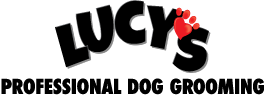Recommendations for Dog Groomers
Often groomers are asked to do extra jobs while they have your dog in for grooming. Lucy has asked me, Megan Alderson to comment as an experienced veterinarian regarding ear plucking, anal gland expression and hand scaling teeth by groomers in New Zealand. Following is what I have advised her.
Ear Plucking: I almost never pluck ear hair and I recommend my clients don’t either. The only exception would be a dog who seems to have a mat of hair growing over the external canal – flip up their pinna and it kind of looks like a front lawn. I do recommend that clients (or their groomers) trim long ear hair to the level of the external canal opening so it doesn’t get as matted and tangled. Regularly use a veterinary ear cleanser if they have had problems in the past. This approach is recommended by many veterinary dermatologists although it is still a controversial subject between veterinary practitioners – some are plucking advocates, some are against it.
Unnecessary ear plucking can cause inflammation and leave open follicles just waiting to fill up with something: bacteria, yeast, inflammatory cells, etc. I’ve seen dogs that don’t react painfully when their ears are plucked but whether there’s pain or not you will cause inflammation in the ear canals so try to avoid it. Bottom Line: If there is no problem with the ears, I leave the hair alone. If a dog does have an ear infection, then I think you may need to pluck to treat the ear after a suitable course of medication – this is a job for your vet, especially if sedation is required to do it gently and without pain.
Anal Gland Expression: It took me many years as a qualified veterinarian to do this competently and effectively and again, my recommendation would be that if it’s not a problem then it doesn’t need fixing.
Anal glands are scent glands on either side of the anus which normally express onto a dog’s faecal motion. Due to diet, breed, exercise and other factors, in some dogs they can become impacted and can become infected and abscessate. Treatment of anal gland impaction should be directed at the cause and if necessary, the anal glands expressed by an experienced veterinarian in order to empty them safely with the least amount of trauma.
Trauma to the anal area during anal gland expression can create problems due to inflammation and infection in this bacteria filled area and therefore should be left in experienced hands, ie your veterinarian.
Teeth Cleaning: Groomers have been known to offer a service called ‘Standing Dentals’. This process can do more harm than good for the reasons listed below:
- They leave plaque and calculus in places where the owners can’t see it, so the owner is given a false sense of security that the mouth is healthy.
- ‘Standing Dentals’ scratch the enamel surface but do not allow polishing so the tooth is left even more plaque retentive than before.
- ‘Standing Dentals’ are unpleasant for the animals and so can make them head-shy which makes instituting an effective home-care programme much more difficult.
- ‘Standing Dentals’ often lead to damage to the gingiva as the animal wiggles about while there is a sharp instrument in the mouth.
- ‘Standing Dentals’ do not allow for a thorough oral examination and so subtle problems are left undetected and untreated until they become serious.
I recommend groomers refuse to offer this service. A ‘Standing Dental’ is bad for the dog (there are risks with no benefit) and bad for the owners (who pay for worthless, potentially harmful treatment).
For an oral hygiene procedure (prophy) to be therapeutically beneficial it must involve a total removal of all calculus and plaque supra-gingivally and, more importantly, subgingivally. All exposed tooth surfaces must be polished after scaling to remove residual plaque and create a smooth tooth surface that will be easier to keep clean. Other concerns such as oral and gingival masses, fractured and worn teeth, orthodontic problems, etc should be investigated, charted and either treated or referred.
In the ‘Standing Dental’ only the buccal surfaces of the crowns are scaled giving a false sense of security. It is not possible to probe and clean below the gum-line, in between teeth or on the tongue and palate side of the teeth. It is not possible to polish the teeth in the conscious patient nor is it possible to conduct a thorough oral and dental examination. For this reason it is better to leave it to your vet to advise and help with your pet’s dental care.

